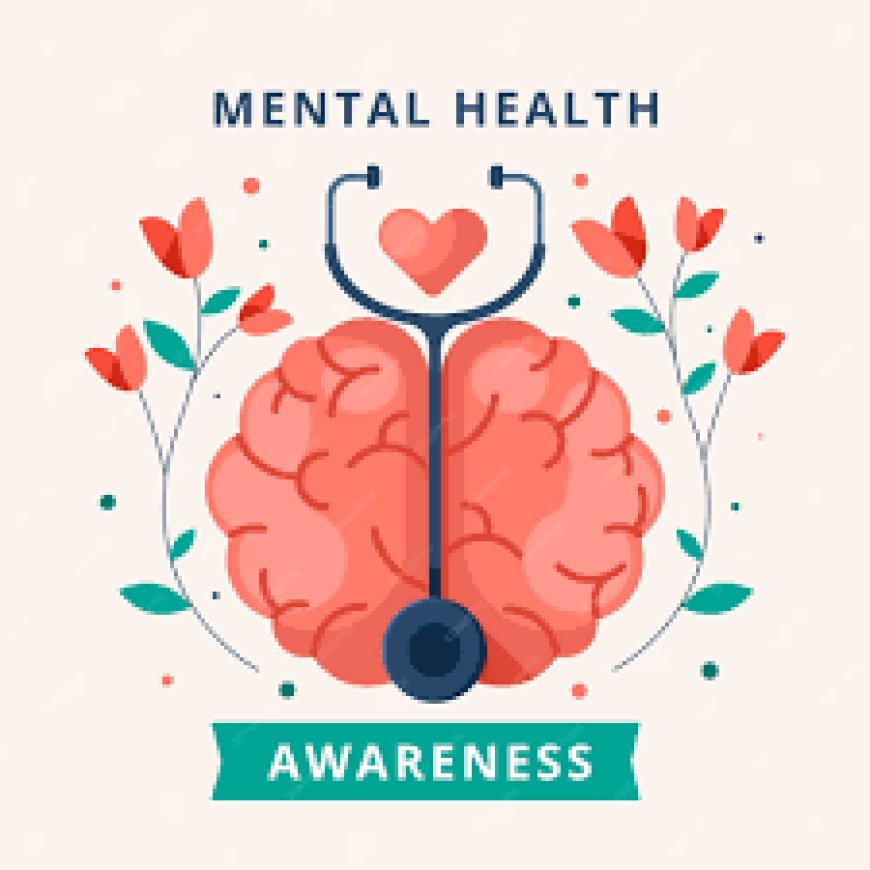Mental Health Awareness: A Pressing Need in Today’s World
Mental health awareness is crucial in today's society, with nearly 1 billion people globally affected by mental health disorders. Open discussions reduce stigma, promote early intervention, and improve access to resources and support systems. Modern pressures like social media and the COVID-19 pandemic have heightened mental health challenges. Steps to promote awareness include education, open conversation, challenging stigma, and practicing self-care. Together, we can create a world where mental health is valued as much as physical health.

Mental health is no longer a whispered topic in the corners of society. In today’s fast-paced and often overwhelming world, mental health awareness has become a critical conversation. Just like physical health, mental well-being significantly impacts our ability to function, cope with stress, and live fulfilling lives.
Why is Mental Health Awareness Important?
There’s a startling statistic: according to the World Health Organization (WHO), nearly 1 billion people globally suffer from a mental health disorder [1]. This includes conditions like anxiety, depression, bipolar disorder, and schizophrenia. Despite this prevalence, the stigma surrounding mental illness remains a significant barrier. People often fear judgment or discrimination, leading them to suffer in silence.
Here's where mental health awareness comes in. By openly discussing mental health issues, we can:
Reduce stigma: Talking about mental health challenges helps normalize them and encourages people to seek help.
Promote early intervention: Increased awareness allows individuals to recognize signs and symptoms in themselves or loved ones, leading to earlier diagnosis and treatment.
Increase access to resources: Open conversations pave the way for improved mental health services and support systems.
Mental Health in the Modern Age
The pressures of the modern world can take a toll on our mental well-being. Factors like social media comparison, financial insecurity, and job instability contribute to rising anxiety and depression rates. The COVID-19 pandemic further exacerbated these issues, creating a sense of isolation and uncertainty.
What Can We Do?
There are steps we can all take to promote mental health awareness:
Educate Yourself: Learn about common mental health conditions, their symptoms, and available treatment options. Reliable sources like the National Institute of Mental Health (NIMH) [2] and the WHO websites provide valuable information.
Talk Openly: Engage in conversations about mental health with friends, family, and colleagues. Sharing personal stories (if comfortable) can be incredibly powerful.
Challenge Stigma: Counter negative stereotypes associated with mental illness. Remember, mental health conditions are treatable.
Practice Self-Care: Prioritize activities that nurture your mental and emotional well-being. This can include exercise, relaxation techniques, spending time in nature, and connecting with loved ones.
Mental Health Awareness: A Collective Responsibility
Mental health awareness is not just a campaign or a hashtag; it’s a continuous effort to create a world where everyone feels comfortable seeking help and prioritizing their mental well-being. By working together, we can foster a more supportive and understanding environment where mental health is valued as much as physical health.














































